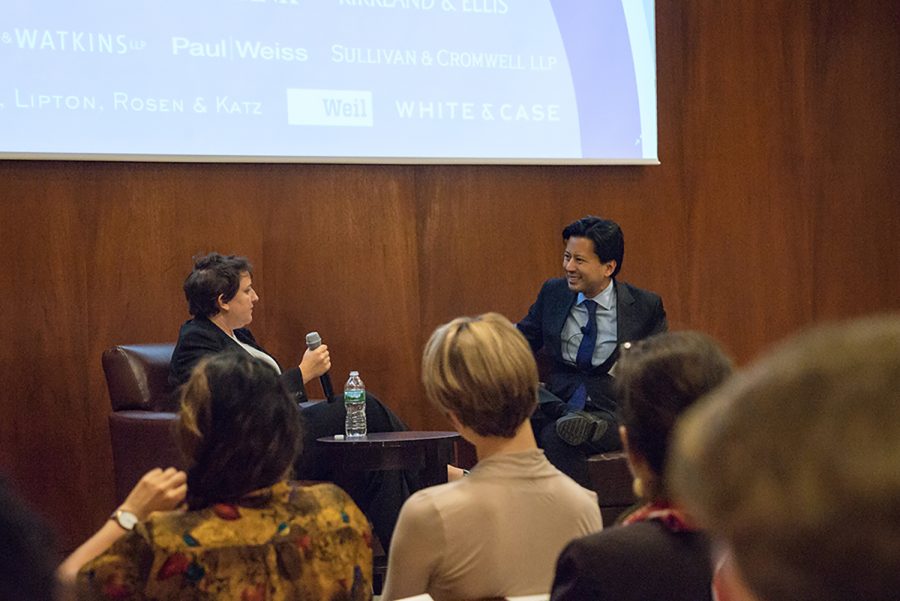The #MeToo movement has been encouraging victims of sexual assault and harassment to come forward over the past year. However, for many survivors, the conversation ends there. NYU alumna Julie Fink hopes to change that.
The lawyer and founding partner of Kaplan Hecker and Fink spoke at an event hosted by the NYU School of Law’s Center for Diversity, Inclusion, and Belonging on Wednesday night. The conversation, moderated by Law Professor Kenji Yoshino, focused on tackling the legal side of issues that are at the heart of the #MeToo movement, like sexual harassment.
Fink is best known for her litigation in United States v. Windsor, a Supreme Court case in which it was ruled that limiting “marriage” and “spouse” solely to opposite-sex unions — as part of the Defense of Marriage Act — was unconstitutional. She was invited to replace the original speaker, Roberta Kaplan, who fell ill before the event.
One of Fink’s key points was the dangers inherent in making generalizations about LGBTQ people. Fink recalled a conversation with a bisexual woman who said that people often assume she is talking about her sex life when they find out she is bisexual.
“That makes you more likely to be perceived as approaching someone in a sexual way even when you are not,” Fink said. “You are either victimized in a way that’s more sexual than you might be otherwise, or you are approached in a way that’s more sexual than you might be.”
Fink pointed out that, in spite of the immense popularity the #MeToo movement has gained, many people who have suffered sexual harassment still rarely speak about their experiences.
“When you see successful people who made it pretty far who seem to have it all, you [learn] that they are victims of sexual assault, and they don’t report it for a lot of reasons,” Fink said.
Laura Sinrod, a New York attorney who attended the event, said she admires Fink’s contributions in United States v. Windsor, especially since Sinrod’s own work has shown her firsthand that cases centered on relationships can be difficult.
“I work with a lot of victims of domestic violence, and there’s all these questions about consent and credibility, and relationships are complicated,” Sinrod said. “I was happy that [Fink] acknowledged that.”
Another attendee, alumna Lana O’Brien, said she was inspired by Fink’s work.
“I found it really great to see someone who graduated the same year as me from NYU who’s doing really amazing work, and speaking out about it and doing her part in her role to try to make sure that the conversation continues,” O’Brien said.
At the end of the event, when Yoshino asked Fink to give advice to young law students, Fink encouraged them to take initiative and create their own opportunities.
“You don’t get what you don’t ask for,” Fink said. “You would be amazed what you can get if you ask.”
Email Justin Wu at [email protected].























































































































































